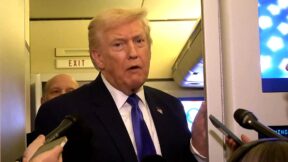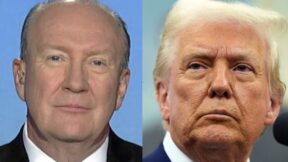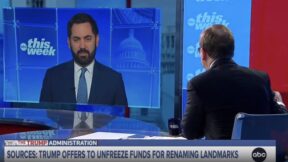Pete Buttigieg Confronted on Spike in Minority Drug Arrests During Time as Mayor
ABC News correspondent Linsey Davis confronted Pete Buttigieg on the disproportionately high amount of drug arrests of African-Americans in his city while he mayor of South Bend, Indiana.
“I want to turn now to criminal justice,” Davis said. “Mayor Buttigieg, under your leadership as mayor, a black resident in South Bend, Indiana was four times more likely to be arrested for marijuana possession than a white resident . Now, that racial disparity is higher than the rest of the state, in fact, that’s higher than the rest of the nation. And that disparity increased in South Bend after you took office. When talking about the problem in national terms, you’ve called it ‘evidence of systemic racism.’ But you were mayor for eight years, so weren’t you, in effect, the head of the system. and how do you explain that increase in black arrests under your leadership?”
Buttigieg’s began his answer with a deflection.
“The reality is, on my watch, drug arrest in South Bend were lower than the national average and, specifically to marijuana, lower than in Indiana,” Buttigieg said. “There is no question that systemic racism has penetrated to every level of our system and my city was not immune. I took a lot of heat for discussing systemic racism with my own police department.”
Left out of Buttigieg’s answer was his controversial firing of the city’s African-American police chief just one year into the then 29-year-old’s first term. Buttigieg fired the veteran officer, Darryl Boykins, after he learned that the chief had secretly recorded white police officers in an attempt to root out racism from the ranks. The FBI then opened an investigation of Boykins, but choose not to pursue charges. Buttigieg has refused to release the tapes of the white officers talking on department phone calls. Both Boykin and the four white officers eventually won settlements against the city for racial discrimination and invasion of privacy, respectively.
“That’s one of the reasons why I am calling for us as a country to take up reforms that end incarceration as a response to possession,” Buttigieg said, before also calling for the full legalization of marijuana. “And when we do it, do it retroactively with expungements to correct the harm done in so many cases of incarceration disproportionately of black and brown Americans where the incarceration did far more harm than the offense it was intended to deal with.”
Not satisfied with Mayor Pete’s artful dodge, Davis circled back to the facts in her original question.
“How do you explain the increase in black arrests in South Bend under your leadership for marijuana possession?”
“And again, the overall rate was lower…” Buttigieg began, again offering up a fact that didn’t address Davis’ specific point.
“No, there was an increase,” Davis cut in. “The year before you were in office it was lower. Once you became in office, in 2012, that number went up. In 2018, the last number, year we have record for, that number was still up.”
“And one of the strategies that our community adopted, was to target when there were cases was there was gun violence and gang violence, which was slaughtering so many in our community, burying teenagers, disproportionately black teenagers,” Buttigieg explained. “We adopted a strategy that said that drug enforcement would be targeted in cases where there was a connection to the most violent group or gang connected to a murder.”
“These things are all connected. But that’s the point, so are all the things that need to change in order for us to prevent violence and remove the effects of systemic racism, not just from criminal justice, but from our economy, from health, from housing, and our democracy itself,” Buttigieg said, pivoting away from his own record without really addressing the criticism.”
Davis then quickly threw a reaction question to one of Buttigieg’s rivals: “Senator Warren, was that substantial answer from Mayor Buttigieg?”
“No.”
Watch the video above, via ABC.
New: The Mediaite One-Sheet "Newsletter of Newsletters"
Your daily summary and analysis of what the many, many media newsletters are saying and reporting. Subscribe now!






Comments
↓ Scroll down for comments ↓